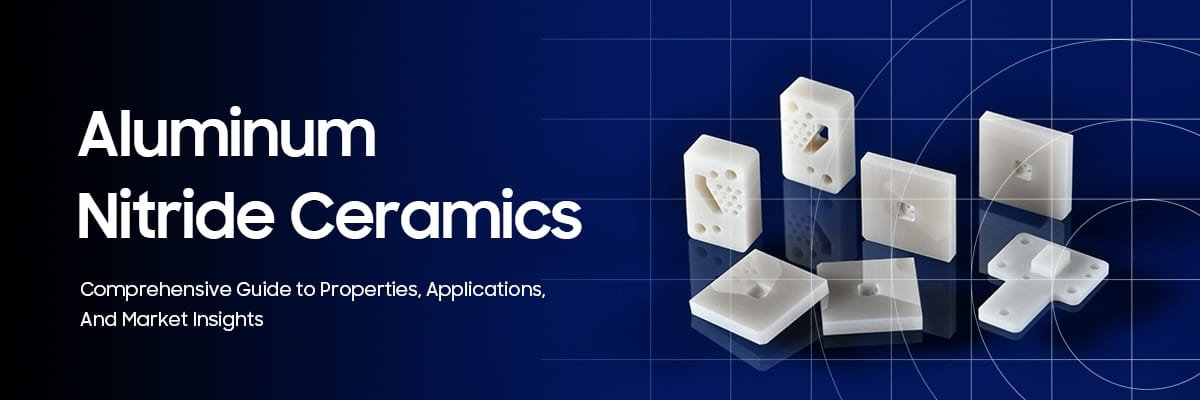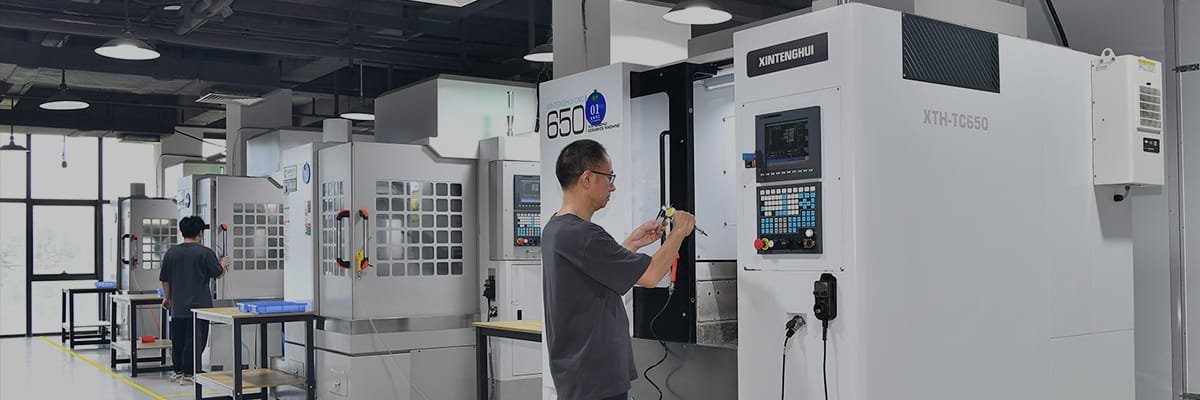
Introduction to Aluminum Nitride Ceramics
Aluminum Nitride ceramics, composed primarily of aluminum (Al) and nitrogen (N), exhibit a crystal structure that enables them to deliver outstanding performance in various high-temperature and high-power applications. With the ongoing development in material science, AlN has evolved as one of the leading choices for applications requiring high thermal conductivity and low electrical conductivity.
The material’s ability to conduct heat, while acting as an electrical insulator, makes it particularly useful for semiconductor components, heat exchangers, LED substrates, and microelectronics. Furthermore, its mechanical properties—such as high hardness and excellent wear resistance—make it suitable for precision engineering applications.
Key Properties of Aluminum Nitride Ceramics
Aluminum Nitride ceramics offer a range of exceptional properties that set them apart from other advanced ceramics
Thermal Conductivity: One of the standout features of AlN ceramics is their high thermal conductivity, which is comparable to metals such as copper (around 200 W/m·K). This makes AlN an ideal material for heat dissipation applications in electronics and power devices.
Electrical Insulation: Despite their high thermal conductivity, Aluminum Nitride ceramics are excellent electrical insulators. This dual property makes them perfect for applications in power electronics, where heat dissipation must be coupled with electrical isolation.
Mechanical Properties: AlN ceramics offer high hardness, which enables them to withstand wear and mechanical stresses, making them suitable for precision machining and high-impact environments.
Manufacturing Processes for Aluminum Nitride Ceramics
Manufacturing AlN ceramics involves several specialized processes due to their complex chemical structure and high-temperature sintering requirements. The common methods used to fabricate these materials include
- Hot pressing densifies AlN powder with heat and pressure for strength.
- Reaction sintering forms dense AlN by sintering AlN in nitrogen.
- PECS rapidly sinters AlN with current and pressure for density.
- CNC Machining AlN enables complex, customized ceramic parts.

Applications of Aluminum Nitride Ceramics
Aluminum Nitride ceramics are widely used in numerous high-tech and industrial applications. Some of the key areas where AlN ceramics provide unparalleled performance include
Electronics and Semiconductors
Electronics and Semiconductors AlN is a critical material in the electronics industry due to its exceptional thermal conductivity and electrical insulating properties. It is commonly used in:
- Heat Sinks for Power Electronics: AlN’s high thermal conductivity allows it to effectively dissipate heat in high-power components such as power transistors, LED devices, and diodes.
- Substrates for Electronic Circuits: In semiconductor packaging, AlN substrates are used for their excellent thermal performance and electrical insulation, helping to prevent overheating and ensuring reliable function in demanding environments.
- Microwave and High-Frequency Devices: Due to its low dielectric loss and high thermal conductivity, AlN ceramics are ideal for microwave components, where both heat dissipation and electrical insulation are essential.
Automotive and Aerospace
Automotive and Aerospace The automotive and aerospace industries demand materials that can operate in extreme temperatures and mechanical stresses. AlN’s high thermal conductivity and stability under high temperatures make it a prime candidate for:
- Thermal Management Components: Used in automotive electronics and aerospace systems to manage heat in power electronics, sensors, and control units.
- Structural Parts in Aerospace: AlN is being considered for structural components that require thermal stability and high strength, such as in satellite components or combustion engines.
LED Technology
The LED industry benefits greatly from AlN due to its excellent thermal conductivity, which helps to extend the lifespan of high-power LEDs by preventing heat build-up
Medical Devices
Aluminum Nitride is also finding its way into medical technology. With its excellent biocompatibility and mechanical properties, AlN ceramics are used in precision instruments, sensors, and imaging equipment that require high performance in sterile or high-temperature environments.
Optical and Laser Systems
In optics, AlN’s high thermal conductivity is beneficial in optical and laser systems where heat dissipation is a significant concern. This property ensures the stability and performance of laser optics, especially in high-powered applications.
Machining and Processing of Aluminum Nitride Ceramics
Aluminum Nitride ceramics are notoriously difficult to machine due to their hardness and brittleness. However, with the right tools and techniques, precision components can be manufactured from AlN
- Diamond Grinding: AlN ceramics are often ground using diamond tools due to their hardness. This method is effective for achieving smooth finishes and precise dimensions in critical applications.
- Laser Cutting: Laser machining is particularly useful for cutting and shaping AlN ceramics with high precision. It offers fine control over cutting depth, which is important for creating intricate geometries.
- CNC Machining: Computer Numerical Control (CNC) machines with specialized ceramic tools can be used to mill and shape AlN into complex parts for use in industries such as electronics and aerospace.
Challenges and Future Trends in Aluminum Nitride Ceramics
While Aluminum Nitride ceramics offer a wide range of benefits, there are challenges that limit their broader adoption
Cost: The high cost of manufacturing AlN ceramics, particularly due to the energy-intensive sintering processes and the cost of raw materials, remains a significant barrier to entry. This challenge is especially relevant for industries that require large volumes of high-performance ceramics
Machining Complexity: The hardness and brittleness of AlN ceramics make them difficult to machine. Specialized tools and techniques are required, which can add to production costs.
Contamination Sensitivity: AlN ceramics are sensitive to contamination, especially during the sintering process, which can affect the material’s final properties. Contamination with oxygen or moisture can cause defects that degrade the material’s performance.
However, with ongoing advancements in manufacturing techniques and increased demand for high-performance materials, Aluminum Nitride ceramics are likely to see continued growth in a variety of industries. Technologies such as pulse electric current sintering and advancements in 3D printing will likely help to overcome these challenges, improving both performance and cost-efficiency
Conclusion
Aluminum Nitride ceramics represent a class of materials that meet the demands of some of the most advanced industries, from electronics and automotive to aerospace and medical devices. With their outstanding thermal conductivity, electrical insulation, and mechanical strength, AlN ceramics are playing a crucial role in the development of more efficient, compact, and reliable technologies. As research into better manufacturing methods and cost-reduction strategies continues, the future of Aluminum Nitride ceramics looks increasingly promising, especially as industries continue to push for higher performance in demanding applications.
Jundro Ceramics, located in Guangdong, China, is a company with many years of experience in precision ceramic processing, offering a personalized and high-quality service since 2019. We specialize in the manufacture of custom parts, starting from a drawing, adapting to all types of series, from short to long, thanks to our diverse and state-of-the-art machinery. Our commitment is to provide an excellent service, ensuring total customer satisfaction, paying attention to every detail in the production process.
